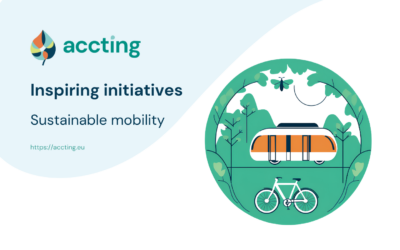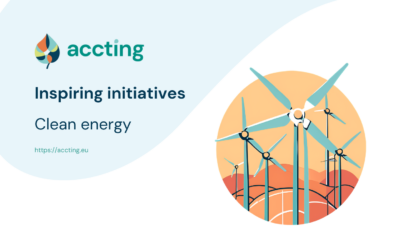
Photo by Julian Hochgesang
What are energy communities? What type of people are typically included? What does this tell us about how these energy communities could be improved?
An energy community is a group of people which shares sustainable energy projects through the participation of its members. Energy communities represent an innovative model for producing, distributing, educating about and consuming energy. This model bases its values on the fight against energy waste and on sharing community energy systems at a competitive price, also thanks to technological innovations which are currently revolutionising the energy market.
Despite energy communities or community energy schemes having been developed in European countries for many years, they often predominantly involve citizens with education, skills, free time, and financial resources that enable and drive them towards such projects.
Against this backdrop, some vulnerable individuals have structural difficulties in participating in energy communities, even if they would be able to contribute meaningfully to them. Indeed, very often, low-income communities, vulnerable women, migrants, and other marginalised and disadvantaged groups appear less involved and less capable of benefiting from energy communities. These forms of social and environmental injustice might contribute to, or at least prevent, energy communities’ potential to help tackle “energy poverty.”
Defining energy poverty to better mitigate it
The EU Energy Poverty Observatory suggests four primary indicators to measure energy poverty: two are related to low energy consumption and an excessive share of income being dedicated to energy expenditure. The other two common indicators are delays in paying bills and failure to keep the house adequately heated in winter (or cooled in summer). Further definitions broaden the concept to include mobility, such as the definition of the Citizens’ Energy Forum 2016, which describes energy poverty as “a situation where a household or an individual is unable to afford basic energy services (heating, cooling, lighting, mobility and power) to guarantee a decent standard of living due to a combination of low-income, high-energy expenditure and low energy efficiency of their homes.”
Municipalities and regional authorities could implement specific policy strategies to mitigate energy poverty by removing the barriers and maximising the drivers for the involvement of vulnerable groups.
In ACCTING, the research line focusing on energy poverty consists of a study of viable energy community schemes targeting energy poverty and the inclusion of vulnerable groups. It will result in policy recommendations suitable for implementation by local European authorities, to facilitate behavioural change from apathy and exclusion, to the active participation of individuals belonging to these vulnerable groups, thereby contributing to the reduction of energy poverty.
About the authors

Giuseppe Pellegrini Masini, Associate professor of social studies at Norwegian University of Science and Technology (NTNU), is an environmental social scientist working on the drivers and barriers affecting the development of bottom-up initiatives and social innovations involving renewables, sustainable transportation and energy consumption in buildings. His specific focus is on energy justice, climate justice and related policies. He is also interested in developing new research lines focusing on the relevance of environmental justice in sustainable development education.

Antonio Carnevale, Postdoctoral Fellow at NTNU, is an eclectic philosopher with expertise in the ethics of emerging technologies such as AI, big data, social robotics, and blockchain. He held a Ph.D. in Applied Ethics at Sant’Anna School of Advanced Studies in Pisa. For many years he has carried out research (Pisa, Frankfurt, Chicago) on philosophical and socio-political aspects of technological and social innovations. Appointed ethics expert and advisor in numerous consortia of European projects, including ACCTING, PALANTIR, ASSISTANCE, PERSIST, IMPULSE, MES-CoBraD.

Dr. Christian A. Klöckner, professor in social psychology and quantatitve methods at NTNU, leads the research group for “Citizen, Environment, and Safety” which is focusing on researching individual, social and contextual drivers of environmental decisions (including food, energy, mobility, housing). His personal research interest are modelling of environmentally relevant decisions and behaviour in the social and structural context, innovative environmental communication methods, societal disruption and transition, and psychologiocal trade-offs in sustainability issues. He is engaged in many national and international research projects, coordinating several of them, among them the H2020 projects ECHOES, SMARTEES, and ENCHANT. He is author of more than 100 academic papers.


